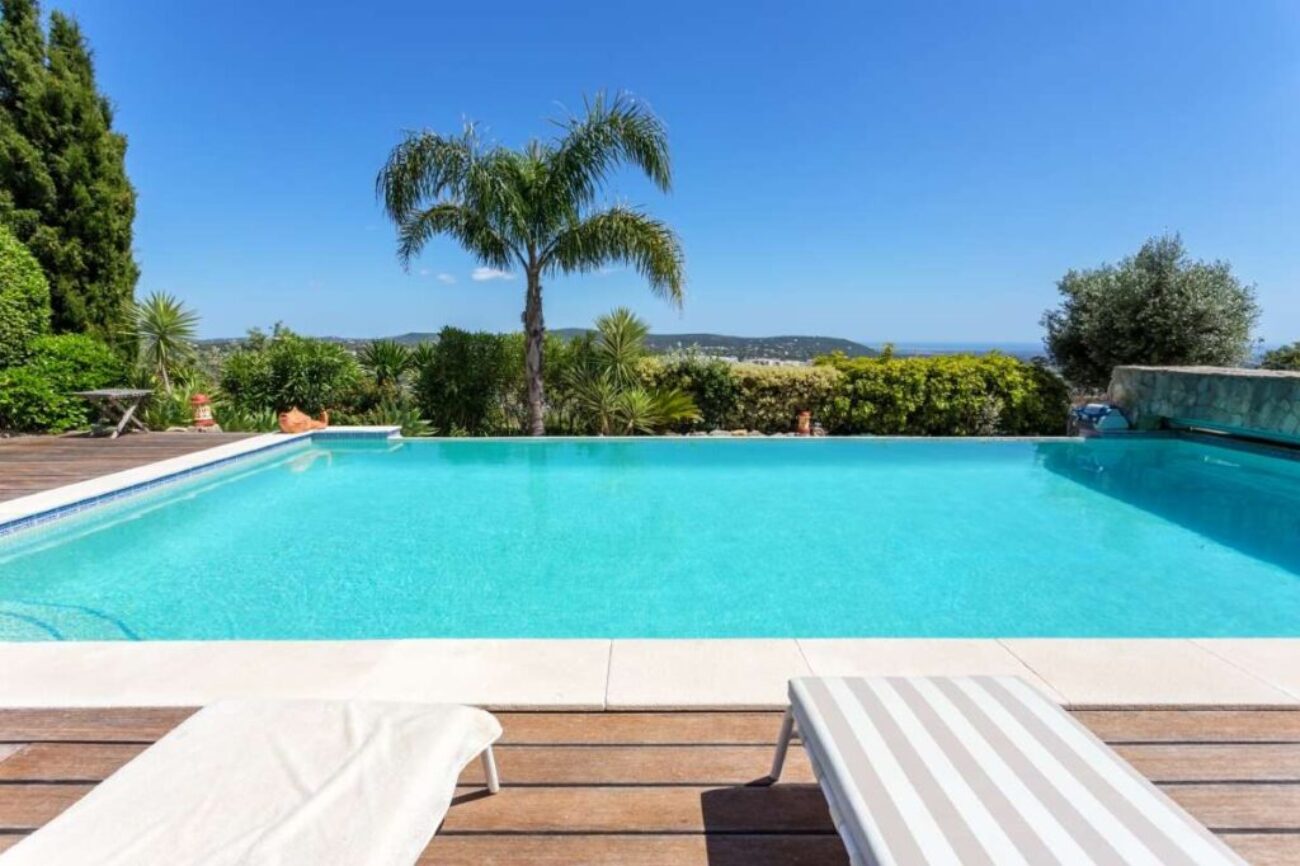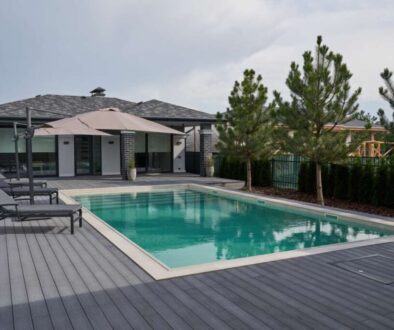Deciding between a residential or commercial pool route can impact your business growth and profitability. Discover the key factors to consider in this guide.
How to Choose Between Residential and Commercial Pool Routes
Choosing the right type of pool route is crucial for anyone looking to dive into the pool service industry. Both residential and commercial pool routes offer unique benefits and challenges, and understanding these differences can help you make an informed decision. This blog post will explore the key factors to consider when choosing between residential and commercial pool routes, including market demand, operational differences, customer relationships, and financial implications. You’ll also learn about the resources available through brokers like Tower Business Brokers, Inc., which can simplify your journey into pool route ownership.
Introduction
The pool maintenance industry has experienced consistent growth, making it an attractive option for entrepreneurs. As you consider entering this market, you’ll likely face the decision of whether to pursue residential or commercial pool routes. Each route type caters to different customer needs and expectations, ultimately influencing your business model and operational strategy. This article aims to provide you with the insights needed to make the right choice for your situation.
The Market Demand for Residential vs. Commercial Pool Routes
Residential pool routes are typically characterized by servicing individual homes with private pools. The demand for these services is often influenced by seasonal trends, with peak times during warmer months when pool usage increases. According to industry reports, approximately 60% of the pool service market consists of residential customers. This strong demand provides a steady stream of income as homeowners seek reliable maintenance to keep their pools clean and safe.
On the other hand, commercial pool routes involve servicing pools at hotels, resorts, apartments, and community centers. While the number of commercial pools is lower compared to residential, they often require more complex maintenance solutions and more frequent visits due to higher usage rates. Working with commercial clients can lead to larger contracts and potential for greater revenue, as these establishments often have bigger budgets for maintenance services. However, with higher revenue potential comes increased operational demands and expectations for service quality.
In cities like Orlando, Florida, where tourism thrives, commercial pool routes are particularly lucrative. Hotels are consistently looking for reliable pool service providers to maintain their facilities, making it an attractive option for business expansion. Likewise, in Texas cities, such as Austin and Dallas, the growing population and commercial development create opportunities for both residential and commercial service routes.
Operational Differences Between Residential and Commercial Routes
The operational dynamics of residential pool routes differ significantly from commercial routes. Managing residential routes often involves a straightforward schedule, focusing on routine cleanings, chemical balancing, and minor repairs. This simplicity can be appealing for new entrepreneurs, as it allows for easier management and potential for scaling as customer bases grow.
Conversely, commercial routes require a more extensive set of skills and resources. Pool maintenance for commercial properties often includes compliance with health and safety regulations, which adds layers of complexity to operations. For example, maintaining the water quality of a hotel pool must meet stringent health codes, and failure to comply can lead to penalties. Additionally, commercial clients may expect additional services such as equipment upgrades, pool renovations, or emergency repairs, further expanding the scope of work.
In terms of workforce, residential routes can often be run with fewer employees, while commercial routes may require a larger team to meet the demands of multiple properties. This could also mean investing in specialized training for your staff, particularly when dealing with more complex systems often found in commercial pools.
Customer Relationships and Retention
The nature of the customer relationship you build can vary greatly between residential and commercial routes. Residential clients often form personal relationships with their service providers. Trust is a significant factor in these connections, as homeowners want to feel confident in the person managing their property. Building a reliable reputation in this market can lead to customer referrals and long-term contracts.
In contrast, commercial clients are more focused on efficiency and reliability than personal relationships. They are likely to prioritize service quality and turnaround time. Establishing a reputation for reliability can lead to more significant contracts and repeat business, but it may take longer to build relationships. Additionally, commercial pools tend to have higher turnover rates, which can be a challenge in maintaining long-term contracts.
Successful pool service businesses often utilize tools to enhance communication and relationship management with clients, such as scheduling software, CRM systems, and customer feedback surveys. These tools can streamline operations and ensure that customer needs are met promptly, regardless of whether you opt for residential or commercial routes.
Financial Implications and Profitability
When considering profitability, both residential and commercial routes have their strengths. Residential pool routes typically yield consistent income due to predictable service schedules. Moreover, as you build a loyal customer base, you can expect steady revenue throughout the year. However, the income per route may be lower compared to commercial options.
Commercial routes, while potentially more lucrative, often come with higher initial investments and operational costs. Businesses serving commercial clients may need more sophisticated equipment and a larger workforce, which can increase overhead expenses. However, the potential for larger contracts and long-term agreements can offset these costs, making commercial routes an attractive option for entrepreneurs looking for higher revenue streams.
In cities like Miami, Florida, the demand for pool services in high-end resorts can lead to contracts worth thousands of dollars. In Texas, cities like Houston also show significant potential for commercial pool contracts, especially with the growth of new residential complexes equipped with community pools. Understanding the local market dynamics can help you assess which route aligns best with your financial goals.
Choosing the Right Type of Route for Your Business
Ultimately, the choice between residential and commercial pool routes will depend on your personal preferences, skills, and business goals. If you enjoy building personal relationships and prefer a simpler operational model, a residential route may be ideal. On the other hand, if you are equipped to manage complex operations and seek higher revenue potential, commercial routes could be the way to go.
Consider your local market as well. Cities like Tampa and Jacksonville offer diverse opportunities in both residential and commercial sectors, while areas in Texas, such as San Antonio, are also expanding rapidly, with various opportunities in both fields. Researching your local market through brokers like [Tower Business Brokers](https://pool-routes-for-sale.com/) can provide valuable insights and guide your decision-making process.
Tips for Transitioning into Pool Route Ownership
Making a successful transition into pool route ownership requires careful planning. Here are some tips to ensure a smooth entry into the pool service industry:
- Conduct thorough market research: Understand local demand for residential and commercial pool routes and identify your target audience.
- Evaluate your skill set: Assess your experience and comfort level with pool maintenance and customer service.
- Leverage a broker: Working with a reputable [pool business broker](https://pool-routes-for-sale.com/) can help you find established routes that align with your goals.
- Invest in training: Seek out training opportunities to enhance your skills in pool maintenance and customer service.
- Build a network: Connect with industry professionals and join local pool service associations to gain insights and support.
Conclusion
Choosing between residential and commercial pool routes is a significant decision that can shape the future of your pool service business. By considering factors such as market demand, operational differences, customer relationships, and financial implications, you can make an informed choice that aligns with your goals. Remember to utilize resources available through [Tower Business Brokers](https://pool-routes-for-sale.com/) to help streamline your journey into pool route ownership. Whether you opt for the personal touch of residential services or the lucrative contracts of commercial routes, success in the pool maintenance industry is well within your reach. Contact us today to explore your options and take the first step towards owning your pool route!



